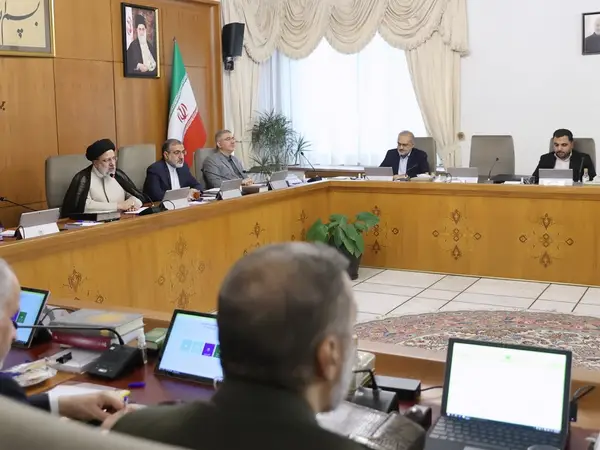A commentary published in Tehran says President Ebrahim Raisi and his aides are determined to bar many current lawmakers from running in the March 2024 elections.
Forouzan Asef Nakhaei wrote in the commentary that a group of managers appointed through lobbying by influential lawmakers are responsible for the economic crisis and widespread poverty in Iran.
Earlier in June a decision by the interior ministry to limit interference by lawmakers in local governments led to conflict among powerful conservative factions. President Raisi’s government ostensibly wanted to create a healthier political environment, but critics saw it as an attempt to clip the wings of those lawmakers who are not among the president’s hardliner supporters.
Khabar Online called the development "a major conflict among hardliners." But other reports in the media indicate the opposite, that hardliners around Raisi are trying to isolate independent lawmakers and tens of neo-cons close to Speaker Mohammad Bagher Ghalibaf and fill the 290 seats with ultraconservative.
Many agree that lawmakers in various factions have exercised their influence on local governors and Interior Ministry officials to ensure their re-election and their preferred candidates in larger cities.
But what the presidential administration wants is to make sure that only the ultraconservative Paydari Party members win the seats. However, the fact is that most top officials Raisi has appointed are from the Paydari front or people presented by them.
However, Paydari hardliners in the parliament accuse their independent and neo-con colleagues of introducing inefficient individuals to the government or of facilitating their rise to political power by getting elected to parliament.
Meanwhile, Nakhaei wrote that hardliners fear without major administrative reforms to give prominence to efficient managers, voters will blame Raisi for all the country's problems and this will reduce the likelihood of his re-election in 2025.
Speaking along the same lines, lawmaker Alborz Hosseini told Rouydad24 news website that the country needs agile managers who are ready to fight their way forward. He added that President Raisi has had a lot of time to sort out the economic chaos in Iran but has failed to do so.
He argued that it is too late for the kind of "trial and error" Raisi is experimenting with. One of Raisi’s weakest points is the appointments he makes, and this impacts the economy, which is clearly not in a good condition.
"Raisi had said at the beginning of his presidency that his choices of officials will go beyond factional boundaries, but in practice his choices were very limited. Now Raisi needs managers who can understand the country's critical situation."
But in addition to internal factors hurting the economy, Hosseini also pointed at the regime’s foreign policy. He underscored that the government should find a way to interact with the world to boost trade, oil sales and repatriation of oil money.
He added: "Raisi failed to stand by his promises and the people are utterly dissatisfied as they cannot make ends meet. It is not acceptable that prices rise two to three times every month. We have failed to do what we had promised in the areas of industry, housing, agriculture and so on and the people have a right to be angry about this."
Meanwhile, centrist website Entekhab likened Raisi's government to former President Mahmoud Ahmadinejad's administration, saying that both governments followed a "purification" project that was aimed at handing over the entire government to populist ultraconservative politicians and both of them appointed individuals to key posts that lacked the right qualification.
